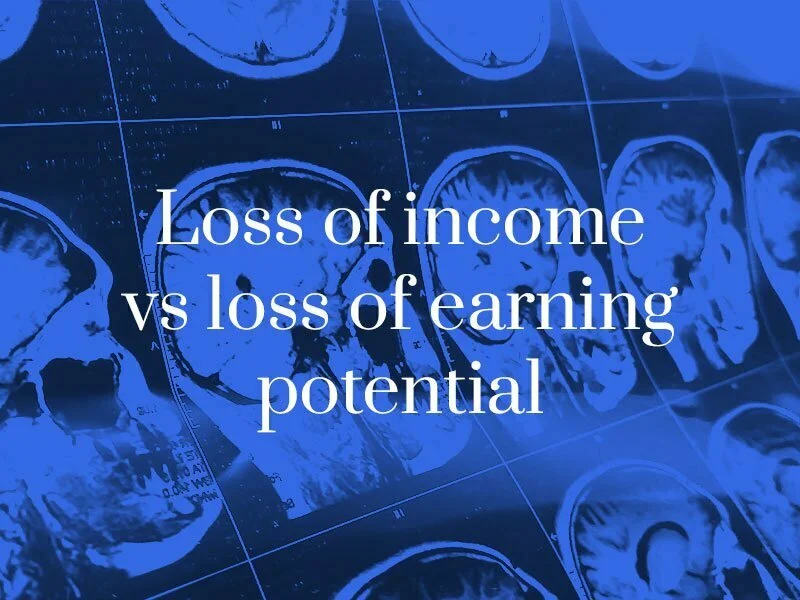Under New York law, plaintiffs are allowed to recover damages for loss of income and loss of earning potential in a personal injury case in NYC. Where loss of income is actual earnings lost, a loss of earning potential is an estimate of how much you could have earned had you not been injured. They may sound similar, but there are differences between the two.

What is Loss of Income?
A loss of income claim can be pursued when an injury has forced a victim to take time off, either temporarily or permanently. The amount can be calculated using the victim’s hourly wages or salary and multiplying it by the number of days or years they will be unable to work. The figure can include both actual lost wages and future lost wages, as well as any benefits they would have received.
- Actual Lost Wages: a calculated amount of income you were unable to earn immediately following the injury up until the trial or settlement. This can be done by using paystubs, tax returns, or an income verification statement from your employer. Additionally, benefits or perks such as used sick time or vacation pay, overtime, bonus payments, lost sales commissions, and lost retirement fund contributions can be claimed.
- Self-employed victims will have to estimate their lost earnings and profits, but still must provide documentation detailing specific wages that would have been earned.
- Future Lost Wages: the same calculation can be used if you expect to be out of work past the date of your settlement or verdict.
What is Loss of Earning Potential?
The loss of earning potential is an element of a loss of income claim, in which a victim can seek reimbursement for the amount of compensation they would have made in the future if it were not for their injury. A major difference between a diminished work capacity and loss of income is that it is prospective, rather than retrospective like wage loss. The amount of damages awarded for loss of earning potential are based on subjective factors, such as:
- The victim’s age and health prior to the injury.
- How long they will be incapacitated.
- Their life expectancy prior to the injury and after.
- If the victim can eventually return to work.
- How their work abilities will be limited.
- The amount of years left before expected retirement.
- Terms of the victim’s employment contract (if applicable).
- Fixed income or if it is performance-based
- Work history, past earnings, and advancement rate within the company.
- The probability of being promoted in the future, as well as the company’s policies on promotions and other benefits.
- The victim’s work ethic and career goals.
While lost earnings are relatively straightforward and easy to prove, demonstrating a loss of earning potential requires some imagination. Healthcare providers may need to testify to the extent of your injuries and how they affect your ability to work in the future. Additionally, expert witness will be required, such as a forensic economist who can provide an analysis of how much the victim could have expected to earn given the salary trends in their career field.
Have Your Case Reviewed for Free
The personal injury lawyers at Sullivan Papain Block McManus Coffinas & Cannavo, P.C. have the resources your case needs to get the results you deserve. Contact us today to schedule a consultation, at no cost to you.
